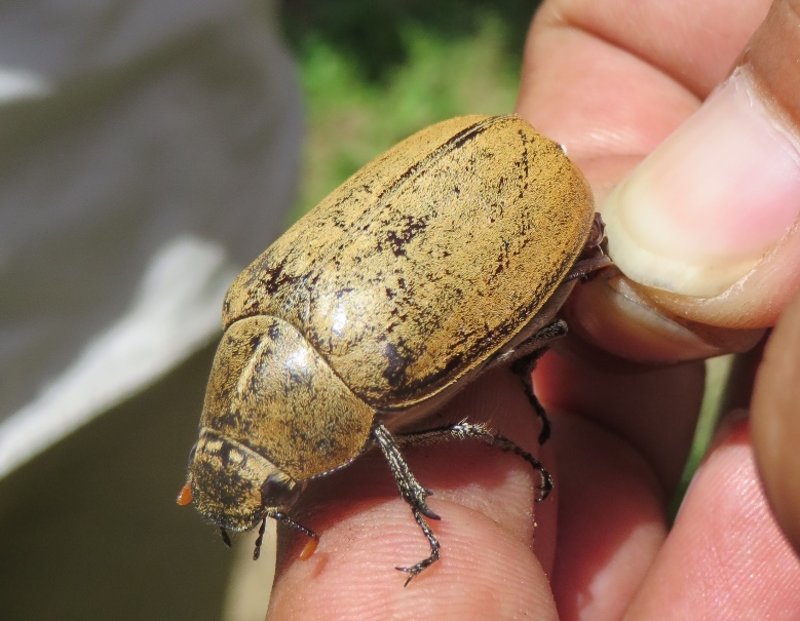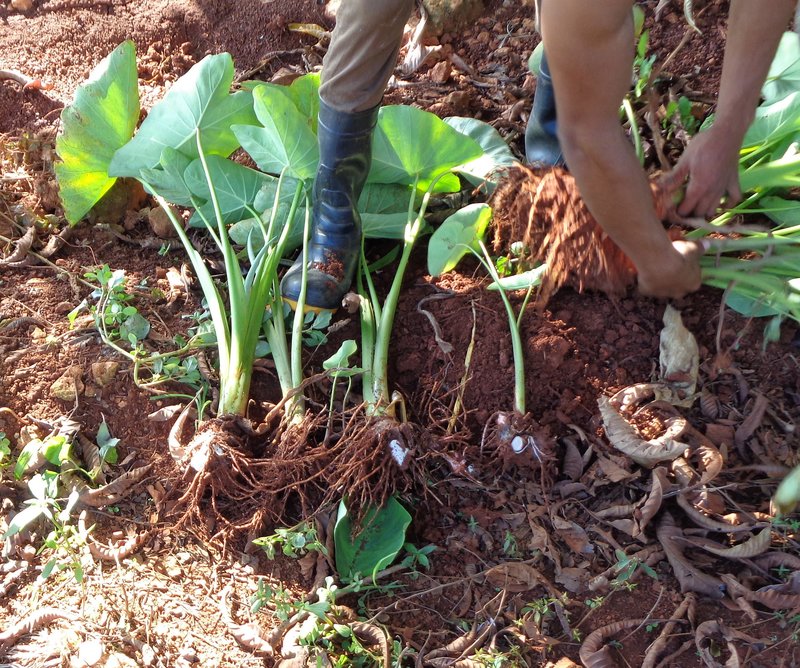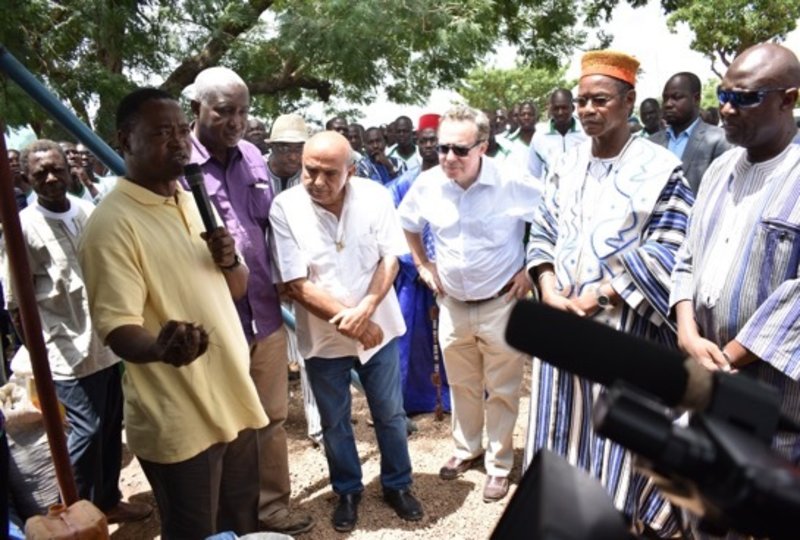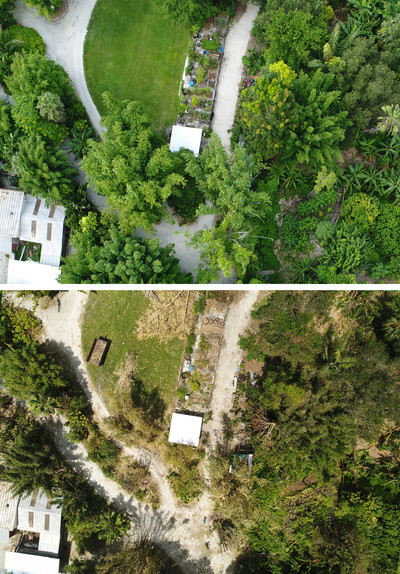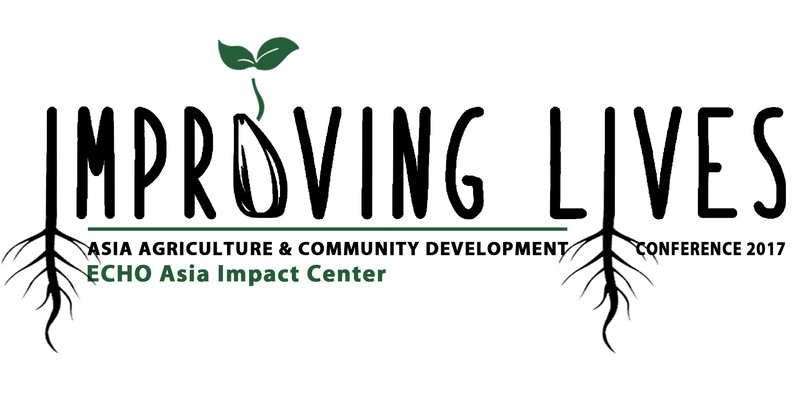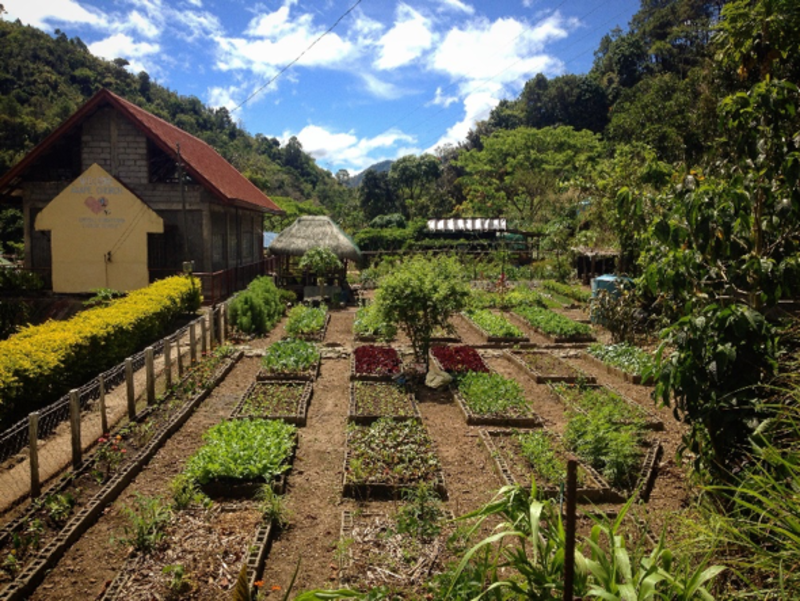ECHOcommunity Updates
Fighting for Farms on the Island of Bali – Overcoming a Major Insect Pest 2018-01-07
Guest post by Patrick Trail
With the threat of eruption of the menacing Mt. Agung volcano looming in the background (which has since erupted), and the evacuation of numerous communities from its slopes, I could understand how people might be willing to leave their homes and vacate their farms. What was more shocking however, was learning that something far smaller and seemingly benign, a local insect pest known as Gayes, could have caused farmers in the same area to have abandoned their fields long before the threat of any volcanic eruption.
Youth Agroecology Short Film - "My Name is Lee" by Emma Bailey 2017-11-17
This short film was selected as one of the top eight entries in the Youth Agroecology Short Film Competition, a collaboration between the Agroecology Learning Alliance in Southeast Asia and the Luang Prabang Film Festival. Selected from dozens of submissions from Cambodia, Laos, Myanmar, and Thailand, these films address issues of sustainable farming, the environment, and agroecology, as well as the role that youth can play in leading a much-needed agricultural revolution in the Mekong region.
Reflections on a trip to Cuba 2017-11-03
At the invitation of the United Methodist Church of Cuba, in early October, a team of three ECHO staff traveled to Cuba. During the five day visit, the team was shown four sites in which the church is currently farming or plans to farm. Following are the team’s observations.
Land tenure in Cuba is different than in other places in which we have worked and/or visited. There is a good bit of fallow land available for production. Along the roads traveled we observed many exotic tree species yet did not see indigenous forests. There are national parks and natural areas; however, visiting those was not possible given the limited amount of time we had. We covered about 400 km by road!
Promoting Youth in Agriculture in Burkina Faso 2017-10-11
Youth unemployment and rural-to-urban migration are big problems in Burkina Faso, as in many other countries. The Laarlé Naba Tigré, a king in the Mossi tribe, is doing something about it. He is demonstrating how agriculture can be a viable future for Burkina youth on his 200-hectare ranch in Dapelgo. The Laarlé Naba Tigré has planted 37,000 moringa trees and built a moringa processing facility, is growing jatropha for biofuels, is raising 11,000 chickens for eggs and meat, as well as improving yields of cotton, maize, millet, and sorghum.
After the Storm 2017-10-04
On September 10th Florida was hit by Hurricane Irma after it inflicted extensive damage on islands in the Caribbean from Barbuda to Cuba. Irma’s damage in Florida began as a category 4 hurricane in the Keys and reduced in strength as it traversed the peninsula.
This year’s ECHO International Agriculture Conference (November 14-16) will include a presentation on storm-resilient farm practices by our Florida staff. It will focus on factors that influence plant survival in high winds, which species are prone to damage and which are not, and strategies to stake and trim trees and bamboo.
Join us for the ECHO Asia Agriculture & Community Development Conference 2017-09-15
The 6th Biennial ECHO Asia Agriculture and Community Development Conference will take place on October 3-6, 2017, in Chiang Mai, Thailand!
Our conference theme "Improving Lives" expresses our desire to partner with you as we train, equip, and grow our network to impact the lives and livelihoods of farmers and their families across Asia. Speakers will share practical solutions to agricultural challenges, personal experiences, and strategies for improving the lives of millions who daily face the threat of starvation. The event offers an open exchange of information, connecting the people and ideas that can make a real and sustainable difference.
Come join us for 3-days of plenary speakers, workshops, a poster session, paper submission and proceedings, and a seed exchange, followed by a 1-day site visit!
Pig Pens, Buried Gold, and the Good News 2017-09-08
Jonathan is a long time ECHO partner and shares a vision of using sound agricultural techniques to lift people up and produce abundance, and to serve as a witness of the Gospel. Many of the vegetables you see in the photo actually came from the ECHO Asia Seedbank in Thailand, and have subsequently been passed on to the surrounding community, many seeds (in many forms) are being planted in this place.
Seeing success from FFF in Nigeria 2017-08-15
"Since I was a young girl I was interested in agriculture but had never had the opportunity to put it into practice until now, 40 years later. I discovered the FFF method of growing corn and I decided to try it instead of tiring out the soil each year. FFF reconstructs the soil and instead of costing more and more for farmers each year in fertilizer, it is less costly in the way one makes his or her own compost, uses mulch, and utilizes manure for building the soil. The most important thing of all, is that the production/harvest increases each year and the soil itself is improving in the process. […] I would often wake up very early, while it was still dark, and I would eat a good breakfast to prepare myself to work in the field for a few hours before the sun came up."
In India, Farmers Are Taking a Novel Approach to Drought Adaptation 2017-07-31
This week’s guest post is an interview with ECHOcommunity member Shibesh Das who has been very helpful in sharing information and ideas with the network. This interview is reposted with permission from Food Tank.
The Doba-based Livelihood Program is an initiative of the Rajadighi Community Health Service Society (RCHSS) located in West Bengal, India, that is helping small-holder farmers conserve water and mitigate against climate change. Dobas are small human-made pits or ditches that, whilst traditionally used for other purposes, can harvest direct rainfall during the wet season and provide much-needed irrigation to crops during dryer months. The reshaping and conserving of dobas within innovative farming communities in West Bengal has resulted in increased crop health and cultivation, supporting livelihoods and the agricultural economy of the region.
Food Tank had the opportunity to speak to Shibesh Das of RCHSS to discuss the impacts of climate change and drought in West Bengal, and how the Doba-based Livelihood Program is enhancing the livelihoods of small subsistence farmers and their families.
Asia Water Harvesting Rainwater Harvesting Water Conservation Water Water Storage Systems Water Supply
